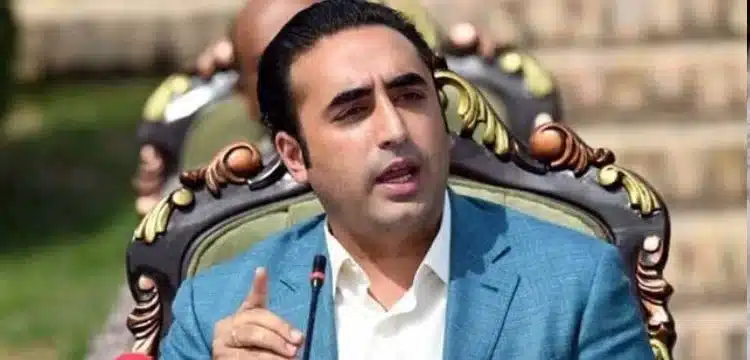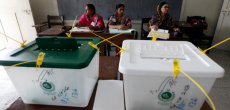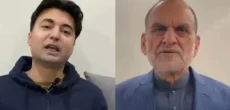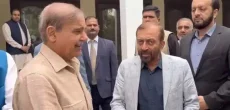[vc_row][vc_column][vc_column_text dp_text_size=”size-4″]In Islamabad, the stage is set for a coalition government to govern the nation of 240 million people for the next five years. Political heavyweights have converged on the capital to counter independent candidates associated with the Pakistan Tehreek-e-Insaf (PTI), who have secured the majority of seats in the recent elections.
Amidst these negotiations, the Pakistan Peoples Party (PPP) has emerged as a key player, putting forth a demand for the coveted position of premiership for its chairman, Bilawal Bhutto, according to reports. The prospect of Bilawal Bhutto assuming the role of prime minister is likely to introduce a new dynamic, as it may not align favorably with the aspirations of Nawaz Sharif’s Pakistan Muslim League-Nawaz (PML-N), which is engaged in talks with various political entities, including the Muttahida Qaumi Movement-Pakistan (MQM-Pakistan) and the Pakistan Muslim League-Quaid (PML-Q).
Read more: PML-N Proposes Presidency, NA Speakership To PPP In Talks
As the urgency to form a coalition government with the PPP and the MQM-Pakistan intensifies to counter PTI-backed individuals, the PPP appears to be proceeding with caution. Over the weekend, Bilawal Bhutto emphasized the need to await the complete election results before making any decisions. This stance aligns with earlier indications that the PPP prefers to thoroughly assess all available options before committing to a course of action.
The meeting between Asif Zardari, the leader of the PPP, and PML-N President Shehbaz Sharif has garnered attention, reflecting the intricate political dynamics at play. The priority for the PPP seems to be leading the government, rather than settling for secondary positions such as the presidency or governorship.
The Election Commission of Pakistan has announced the results of the country’s General Election 2024, amid allegations of irregularities, mismanagement, and rigging. According to the results released by the electoral watchdog, PTI-backed independent candidates secured 101 seats, making them the leading party. PML-N emerged as the runner-up with 75 seats, while the PPP secured 54 seats. The gap between the PTI-backed members and the seats won by PML-N and PPP narrowed down as the final results trickled in after 65 hours of polling.
Noteworthy is the performance of other political entities, with the MQM-Pakistan securing 17 National Assembly seats, primarily from Karachi and other regions in Sindh. Fazl’s Jamiat Ulema-e-Islam-Fazl (JUI-F) won four seats, and Chaudhry Shujaat’s Pakistan Muslim League-Quaid (PML-Q) secured at least three seats. As the political landscape takes shape, these results will significantly influence the alliances, negotiations, and power dynamics in the formation of the coalition government that will govern Pakistan in the coming years.[/vc_column_text][/vc_column][/vc_row]











